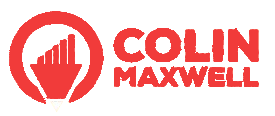Effective leadership is not defined solely by how well one manages others—it starts with the ability to manage oneself! Personal development is the foundation of ethical decision-making, effective communication, and long-term resilience in leadership roles. This vital area of growth is often underrepresented in professional reading, yet it remains critical to meaningful leadership progress.
While many books to improve leadership skills focus on external performance, few address the inner work required to lead with consistency, fairness, and confidence. One title that offers a comprehensive and grounded approach to both personal and professional development is Leadership, Ethics and Paradigm Shifts, by Colin Maxwell. It stands apart by showing how internal discipline and ethical grounding lead to stronger leadership outcomes.
Why Personal Development Should Not Be Ignored
Strong leadership requires more than strategy and delegation. Leaders must possess self-awareness, emotional balance, and a clear value system. These qualities can only be developed through consistent personal reflection and discipline.
Stress, fear of failure, poor communication, and unresolved internal conflicts often affect leadership decisions more than technical skill gaps. Ignoring these factors leads to poor morale, higher employee turnover, and reputational damage. Leaders who actively work on self-growth make better decisions and build more trustworthy teams.
Many books to improve leadership skills offer frameworks and models, but without a focus on personal development, those tools remain underutilized. Maxwell’s book helps fill this essential gap.
Core Areas of Growth for Leaders
Personal development covers a wide range of traits and skills that affect leadership quality. In this book, several of these are explored in depth:
- Emotional Intelligence: The ability to manage one’s emotions and respond appropriately to others
- Ethical Awareness: Acting with fairness, honesty, and accountability
- Stress and Anger Management: Learning to respond calmly and constructively in tense situations
- Interpersonal Communication: Building meaningful and respectful relationships across all levels of an organization
- Self-Discipline: Staying focused and maintaining integrity under pressure
Unlike other books to improve leadership skills, Leadership, Ethics and Paradigm Shifts addresses each of these with practical context and examples drawn from business scenarios.
How Leadership, Ethics and Paradigm Shifts Approaches Personal Development
What makes Maxwell’s work especially effective is how it connects leadership development to personal character. The book is filled with realistic insights that reflect everyday challenges in leadership roles. Topics such as dealing with difficult employees, facing ethical dilemmas, and handling workplace pressure are explored in ways that encourage personal accountability.
For example, one section of the book focuses on anger management, not as a clinical topic, but as a real issue that impacts daily leadership behavior. Another chapter presents ethical leadership as a function of personal values, rather than a set of policies to memorize.
Other leadership books often rely on motivational anecdotes or abstract principles. This book, in contrast, speaks directly to the leader’s internal responsibilities, urging them to become more consistent and thoughtful in how they operate.
Personal Growth as a Leadership Multiplier
Leaders who invest in their personal development build a foundation for broader organizational success. Leaders who are self-aware are more likely to listen actively, respond to feedback, and admit mistakes when necessary. These qualities create a culture of openness and trust, which leads to better collaboration and long-term performance.
Moreover, when leaders lead by example—by managing stress, communicating respectfully, and acting with integrity—they set a standard that others are more likely to follow. This creates alignment between stated values and actual behavior― a critical factor in employee satisfaction and customer trust.
Among books to improve leadership skills, very few offer this direct connection between internal growth and external effectiveness. Maxwell’s work bridges that gap with clarity and relevance.
Why This Book Stands Out
Leadership, Ethics and Paradigm Shifts is not just a manual for strategic thinking—it is a call to responsible and ethical leadership, built on personal accountability. While many books offer leadership theories or corporate models, this book speaks plainly about the behaviors and decisions that define real leaders.
It provides structure without rigidity and direction without preaching. Leaders are encouraged to think for themselves, apply the principles honestly, and grow at a pace that matches their unique situations. This balanced and honest approach is rare in the field.
Compared to most books to improve leadership skills, this one puts the reader in direct control of his or her growth, with guidance that is both relatable and applicable.
In a Nutshell
Leadership starts with the individual. The ability to manage people, processes, and performance rests heavily on how well a leader understands and manages himself or herself. Personal development is not a bonus—it is a requirement for anyone who wishes to lead effectively, ethically, and sustainably.
Among the wide range of books to improve leadership skills, Leadership, Ethics and Paradigm Shifts stands out, by providing a complete, realistic, and grounded approach. It offers readers the tools to grow from within, while building leadership capability that others can trust and follow.
Review Leadership, Ethics, and Paradigm Shifts today, and hone the leadership skills that matter most—starting from within.
Build a foundation of self-discipline, ethics, and clarity that drives meaningful progress.

